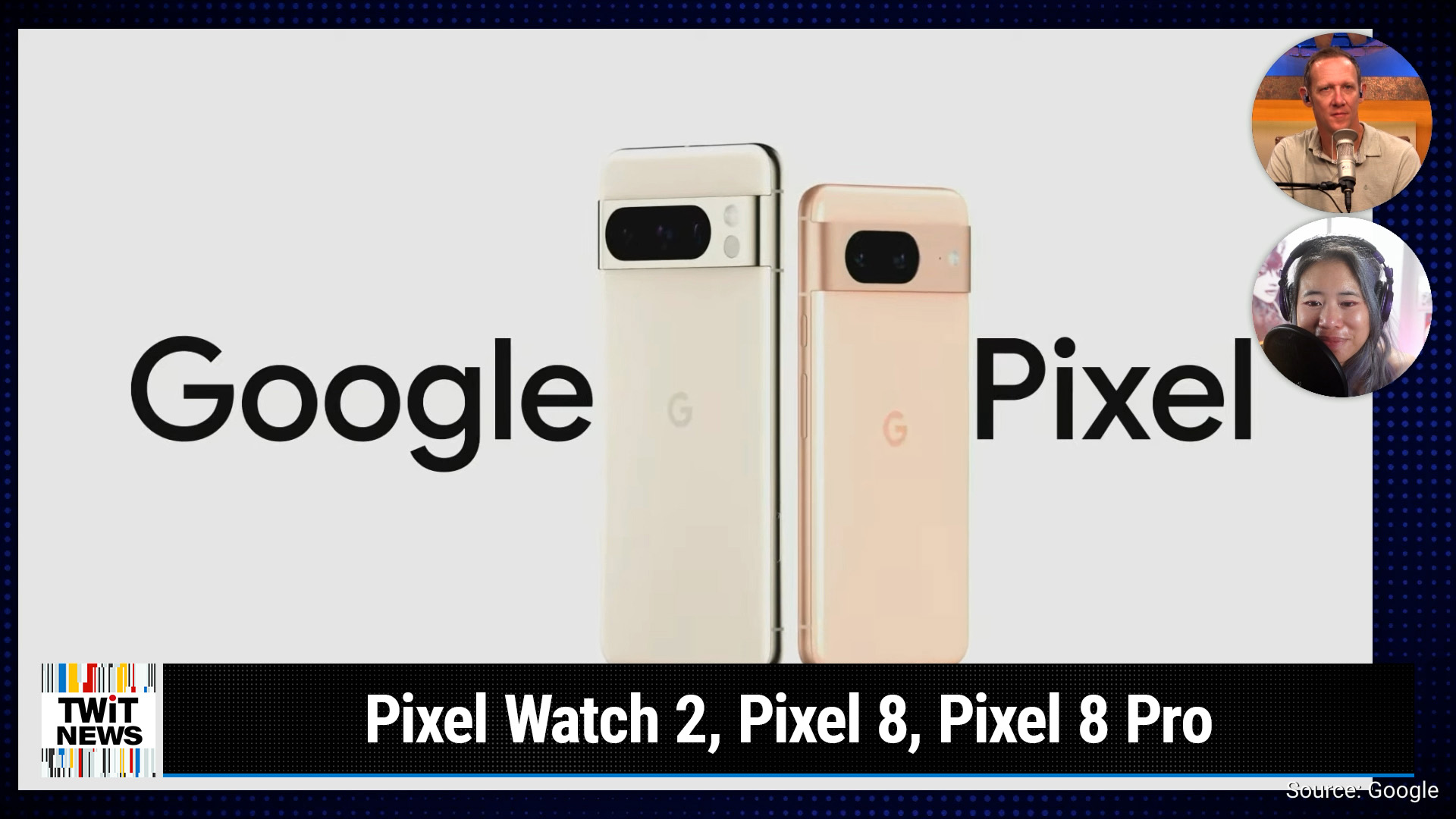Google Unveils New Pixel Devices and Major AI Updates at Made by Google Event

Google held its annual Made by Google hardware event on October 4th, unveiling a slate of new products, including the Pixel 8 and 8 Pro phones, Pixel Watch 2, and Pixel Buds Pro earbuds. TWiT host Jason Howell and guest Huyen Tue Dao offered commentary throughout the event's livestream, highlighting the most significant announcements and their potential impact.
The Pixel 8 and Pixel 8 Pro phones were featured heavily, with a design that follows the Pixel line's signature look while adding a bit of softness to its edges. Powered by Google's new Tensor G3 chip, SVP of hardware Rick Osterloh claimed they are the first phones engineered for the "generative AI era." The Pixel 8 Pro, in particular, can run advanced AI models directly on the device, enabling new features like improved Magic Eraser and Zoom Enhance.
Both phones sport upgraded camera systems, with Pixel 8 Pro introducing long-awaited pro controls similar to DSLRs, allowing manual adjustment of settings like ISO and shutter speed. Google also focused heavily on enhancing video capture with new capabilities like Video Boost, which leverages AI to optimize video processing. Night Sight now works for videos, too.
Dao highlighted the phones' increased repairability through a partnership with iFixit as a major win for sustainability. Along with Google's new commitment to 7 years of OS updates for its latest Pixel devices, users should be able to hold onto them for far longer.
In a potential game-changer, Google demonstrated an advanced version of its Assistant powered by its large language model, Bard. This promises to enable more natural conversational interactions, with the Assistant able to summarize emails, offer travel tips, brainstorm creative ideas, and more.
Howell and Dao were clearly excited by the possibilities, with Dao noting this could be a "huge opportunity for Google to really capture some serious momentum in the AI wars." But, they agreed smart implementation and gaining user trust will be critical.
The Pixel Watch also got an upgrade with the new Pixel Watch 2. Beyond incremental hardware improvements like a faster processor, Dao focused on enhancements to fitness tracking capabilities, including an improved heart rate sensor, an electrodermal activity sensor to monitor stress levels, and a temperature sensor.
Dao felt the integration with Fitbit to provide personalized coaching and insights powered by AI could be especially beneficial for users on a health and fitness journey by providing much-needed context to raw data. She said that the ability to query the app in natural language about anomalies in your data presents a "very Google way of approaching" wearables, she said.
Finally, Google unveiled the updated Pixel Buds Pro wireless earbuds. While not a dramatic redesign, they add several AI-powered features to improve sound quality. This includes enhanced Clear Calling to reduce background noise on calls and integration of Bluetooth super-wideband speech to make voices sound more natural.
Pixel Buds Pro can also automatically pause audio and activate transparency mode when the wearer begins speaking. Howell was skeptical that this would work flawlessly in practice based on experience with similar features but was eager to give it another try.
While not the flashiest announcements, Howell and Dao agreed Google's commitment to long-term software support and repairability is a major step in the right direction when it comes to sustainability and potentially winning over more consumers. With Google invested in bringing advanced AI to their devices, it looks like the Pixel line will continue pushing boundaries.
You can download and watch the coverage here: TWiT News - Made by Google 2023
